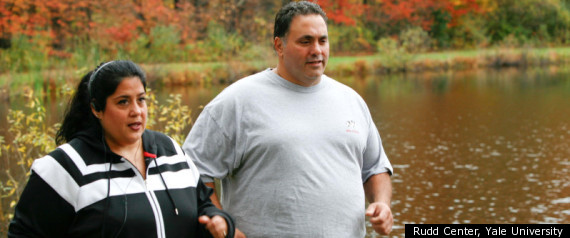By: Rachael Rettner, MyHealthNewsDaily Staff Writer
Published: 02/03/2012 09:08 AM EST on MyHealthNewsDaily
We’ve heard obesity can be “spread” between friends when we copy each other’s eating habits, but a new study in mice suggests obesity could actually be infectious. That’s right, infectious. As in, something you can catch.In the study, mice engineered to have a particular immune deficiency developed fatty liver disease and got fatter when fed a Western-style diet. But strikingly, when these immune-deficient mice were put in the same cage as healthy mice, the healthy mice started to come down with symptoms of liver disease, and also got fatter.

The culprit? Microbes in the stomachs of the mice. Because the mice had their immune systems disturbed, the bacteria in their guts got “out of wack,” said study researcher Richard Flavell, a professor of immunobiology at Yale School of Medicine. We normally live in symbiosis with the bacteria in our guts, but in the study, the number of “bad,” disease-associated bacteria increased 1,000-fold in mice with immune problems, Flavell said.
And it’s these bad bacteria that were transmitted from mouse to mouse, causing the healthy mice to also experience changes in their gut microbes — and making them fat.
“We could make a mouse fatter just by putting it in the same cage as the other mouse,” Flavell said.
The crucial question is: Could this happen in people?
It’s possible, but we’ll need much more research to find out, Flavell said. The contagiousness of obesity seen in this study is probably more likely in mice than in people because mice eat each other’s poop, a very efficient way to transmit gut bacteria (add this to your list of reasons not to eat poop).
At minimum, the study suggests “this should be very seriously looked at in people,” Flavell said. Fatty liver disease is very common among obese people, affecting 75 percent to 100 percent of the obese population, the researchers say. In about 20 percent of these individuals, the disease progresses and becomes severe.
Previously, if two family members living in the same household both developed liver disease or became obese, people would have blamed genetics. But the new study suggests the environment may play a role as well.
If the findings apply to people, they would suggest we need to take approaches to obesity and fatty liver disease that address gut microorganisms — perhaps antibiotics or probiotics — in addition to traditional treatments, Flavell said.
“This is a very thought-provoking study that underlines the role of the bugs that we all carry inside us in determining our susceptibility to liver disease and its complications,” said Dr. Jasmohan Bajaj, an associate professor of gastroenterology, hepatology and nutrition at Virginia Commonwealth University, who was not involved in the study. More work is needed in humans, who are much more complex than mice, to understand the role of gut bacteria in liver disease, but “these experiments form a key step forward,” Bajaj said.
The study was published online Feb. 1 in the journal Nature.
http://www.huffingtonpost.com/2012/02/03/obesity-infectious_n_1252853.html











